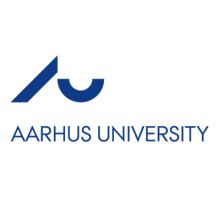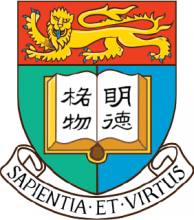
Aarhus University
More about Aarhus University
Aarhus University is a well-established institution, with almost 100 years of history behind it. Since 1928, it has cultivated a reputation as a world-leading research institution, which can be seen through its regular appearance in the top 100 of many rankings. Over the years, AU has evolved into a dynamic and international, institution. Recently, Aarhus University ranked 69th in the Shanghai rankings and regarding internationalization AU is ranked in the top as well as no. 45 on Times Higher Education’s ranking as “Most International Universities in the World”.
50+ study programmes in English
12% of students here at Aarhus University are international, coming from over 120 different countries! We also have many international researchers throughout all faculties, and all our PhDs are taught in English. At Bachelor’s or Master’s level and we are proud to offer over 50 English-taught courses. English really is our second language here at AU. Additionally, we have a specialised International Centre, which can provide guidance and support on a range of topics.
Research-based university
Aarhus University is the largest research-based university in Denmark, and a nationwide institution with three campuses located in Aarhus, Emdrup and Herning. Many lecturers here are active researchers, meaning teaching at AU is based on recent research projects. This gives our students access to the most up-to-date findings, and ensures an excellent standard of teaching.
Scandinavian teaching style inspires critical thinking
The teaching environment at Aarhus University is relaxed and collaborative. We hope to inspire our students through informal class discussions and debates, with our lecturers placing a high value on student insights. This nurtures the development of critical thinking skills. Many of our courses are interdisciplinary, which aims to provide multi-faceted knowledge of the subject and broaden career options.
A comprehensive university with five faculties
There are five main faculties at Aarhus University: Arts, Business and Social Sciences, Health, Natural Sciences and Technical Sciences, with more than 38.000 students and 8000 staff.
Students are welcome to use the state of the art research facilities available in each faculty. Each faculty is highly specialised, and focused on contemporary issues. For example, the faculties of Natural and Technical Sciences are currently concentrating on sustainability and facilitating a green transition.
Explore these featured universities
Explore rankings data for Aarhus University
Compare universities on their key stats
Key statistics
- 12.8No. of students per staff(1)
- 15%Percentage of International Students(1)
- 56 : 44Student Ratio of Females to Males(1)
- 28%Proportion of ISR Publications(1)
- 25,966Number of FTE Students(1)
Video

Find a course at Aarhus University
Engineering & technology
- Electrical & Electronic Engineering
- Chemical Engineering
- Mechanical & Aerospace Engineering
- Civil Engineering
Physical sciences
- Geology, Environmental, Earth & Marine Sciences
- Mathematics & Statistics
- Physics & Astronomy
- Chemistry
Clinical, pre-clinical & health
- Medicine & Dentistry
- Other Health
Life sciences
- Veterinary Science
- Agriculture & Forestry
- Sport Science
- Biological Sciences
Business & economics
- Accounting & Finance
- Business & Management
- Economics & Econometrics
Arts & humanities
- Art, Performing Arts & Design
- History, Philosophy & Theology
- Archaeology
- Languages, Literature & Linguistics
Law
- Law
Social sciences
- Geography
- Politics & International Studies (incl Development Studies)
- Communication & Media Studies
Psychology
- Psychology
Computer science
- Computer Science
Education
- Education





